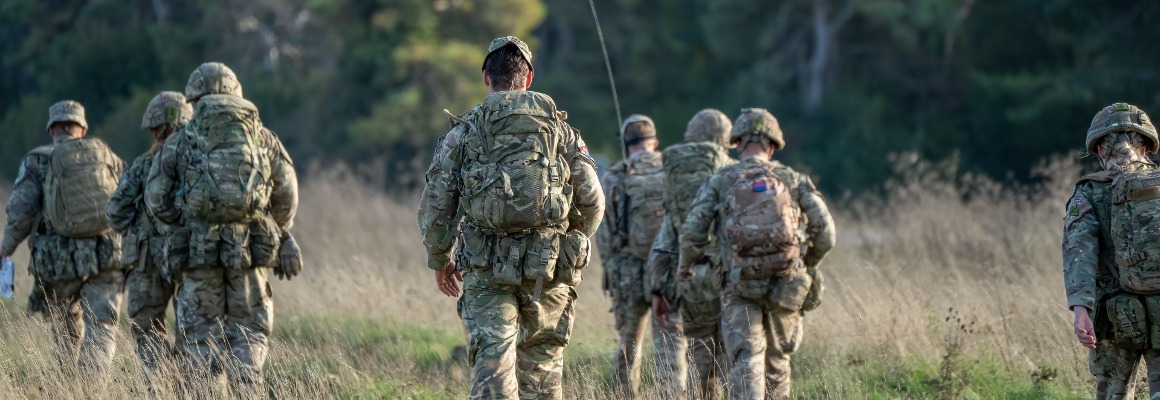Did You Sign MoD Form 106 Without Taking Legal Advice?
Thousands of Armed Forces personnel are likely to have signed 106 forms (military wills) without having taken the necessary legal advice. This is of great concern.
It is safe to say that I’ve seen a great many 106 forms. As a former captain in the Adjutant General’s Corps, I managed the department which dealt with these military wills.
There is a concern that many servicemen and women may have hurriedly signed Form 106 wills that may now no longer reflect their financial or family circumstances. Some may have signed these forms before a deployment and then later forgotten about it. They need to review these wills.
What Is MoD Form 106?
MoD Form 106 – also known as the Joint Service Will Form – is designed for members of the UK Armed Forces. It allows service personnel to make a valid will that complies with the legal requirements in England and Wales.
The Ministry of Defence requires commanding officers to encourage all personnel to make a will. But these COs (as excellent as they are) are not in a position to give any detailed legal advice.
Generally speaking, MoD Form 106 is better than nothing for young service people with limited assets. But it may not always be the best option, especially for older personnel with families and property.
The reality is that circumstances change – and so does tax law – so you should review your will regularly to ensure it still meets your family’s needs.
Hand on heart, when was the last time you checked your will?
Why MoD Form 106 Was Created
Military personnel serve in the UK and on operations/exercises overseas. The MoD developed the standard Form 106 to address the unique circumstances and challenges these testators face, while ensuring their wills are properly executed and legally valid.
MoD Form 106 is recognised and accepted by the relevant authorities. It enables those serving to specify their wishes regarding:
- distribution of their assets
- appointment of executors
- guardianship of any children that are still minors.
When MoD Form 106 Is Not Suitable
While MoD Form 106 is generally suitable for most UK Armed Forces personnel, there are certain situations in which it may not be the best option.
Here are some instances when MoD Form 106 may not be suitable:
- Complex estate planning – if a service person has multiple properties, significant investments, or business interests, a standard Form 106 may not adequately address all the intricacies involved. In such cases, seeking professional legal advice and drafting a more customised will might be more appropriate.
- Foreign assets – if the service member owns assets outside the UK, dealing with them in a MoD Form 106 could be challenging, as the form is designed primarily for assets within England and Wales. International assets might require additional legal considerations and separate wills in the respective jurisdictions.
- Trusts and specific bequests – if the service member wishes to create a trust, set up specific bequests, or make complex arrangements regarding their assets, a standard MoD Form 106 may not offer sufficient flexibility for such provisions.
- Inheritance Tax planning – while MoD Form 106 provides a basic framework for estate distribution, it may not incorporate advanced IHT planning strategies. For individuals with larger estates, seeking advice from an estate planning specialist could help to minimise tax liabilities.
- Changing circumstances – if the individual’s personal or financial situation has changed significantly since they completed the MoD Form 106, it may be necessary to review and update the will to reflect the new circumstances accurately.
- Jurisdictional issues – other countries may have different legal requirements. You may need a different form or a separate will for specific assets or beneficiaries.
It’s essential to seek professional legal advice from a specialist wills and probate solicitor.
We can guide you through the process of creating a comprehensive and legally valid will that aligns with your current situation and goals.
Specific Issues Relating To MoD Form 106
MoD Form 106 itself advises what situations it cannot cover. These include:
- property shared with someone who is not your spouse or civil partner
- remarriage – your former spouse(s) or your children from one or more previous marriages could challenge your will
- trusts – such as those set up to ensure the financial security of children unable to care for themselves
- ownership of a business
- beneficiaries in receipt of state benefits
- executors living outside the UK
- complex and/or high net worth estates.
When Should I Seek Legal Advice About My Will?
MoD Form 106 can be a quick and easy way for young service personnel with few assets and family commitments to make a will.
But is your form valid? Did you have it properly witnessed when you signed it? The form states that witnesses should not be beneficiaries. But sometimes those signing and witnessing the form can still make this mistake.
And as you get older, life becomes more complicated. You acquire more assets, and your family circumstances change. As you have already read, Form 106 will not always cover these eventualities.
So no matter what age you are, no matter how long you have served, no matter what your assets may be, it always pays to get legal advice about whether you need an alternative will.
This need not be time-consuming or expensive. And given the inherent risks associated with life in the military, it makes sense.
Further Reading On Wills And Probate
- Why Good Inheritance Tax (IHT) Planning Matters More Than Ever. Read more…
- When Should I Make Or Review A Will? 13 Key Trigger Points. Read more…
- Capital Gains Tax Changes, Inheritance Tax Issues And Probate. Read more…
- Do All Wills Have To Go Through Probate? Read more…
- Will My Partner Automatically Inherit My Estate When I Die? Read more…
- Leaving A Legacy To Charity. Read more…
- How Can A STEP Wills And Probate Solicitor Help Me? Read more…
Get Expert Legal Advice
For more information about MoD Form 106, contact Coles Miller wills and probate solicitor Holly Munro at our Poole town centre head office.






